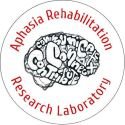Aphasia Rehabilitation Research Lab
Director: Nadine Martin, Ph.D., CCC-SLP
Researchers, clinicians, and students in this laboratory work together to investigate the relationships among language and short-term memory impairments associated with aphasia. Stroke and progressive neurological disorders often lead to changes in language and other cognitive functions. The knowledge we gain through the study of these changes is used to develop better diagnostic measures and more effective treatments for aphasia. The aim of treating both language and short-term memory is to improve overall communication abilities and consequently, the quality of life for people with aphasia.
Concepts and Cognition Lab
Director: Jamie Reilly, Ph.D., CCC-SLP
We are a group of cognitive scientists, neurorehabilitation clinicians and students who share a common interest in semantic memory. We are dedicated both to basic and clinical translational research. Many of our efforts involve applying what we know about language processing to improve communication for people with neurodegenerative conditions such as Alzheimer's Disease and Primary Progressive Aphasia (PPA). We are also investigating ways to better detect cognitive impairment in minority cognitive aging within the North Philadelphia community.
Speech, Language, and Brain Lab
Directors: Gayle DeDe, Ph.D., CCC-SLP and Edwin Mass, Ph.D., CCC-SLP
Research in the SLAB Lab focuses on under- standing speech and language disorders such as aphasia and apraxia of speech, and how best to treat such disorders. This theoretically motivated and clinically relevant research combines a range of behavioral methods and measures including eye tracking, reaction times, acoustic analysis, and treatment research. The long-term goal is to improve diagnosis and treatment for speech and language disorders.
Speech Perception and Cognition Lab
Director: Jing Shen, Ph.D.
Research at the Speech Perception and Cognition Lab is motivated by the overarching goal of improving the communication ability and quality of life of older adults with age-related hearing loss. Our work focuses on the perceptual and cognitive mechanisms in older adults' speech perception, with the aim of developing clinical outcome measures that effectively reflect listeners' experiences in real-world communicative contexts.





